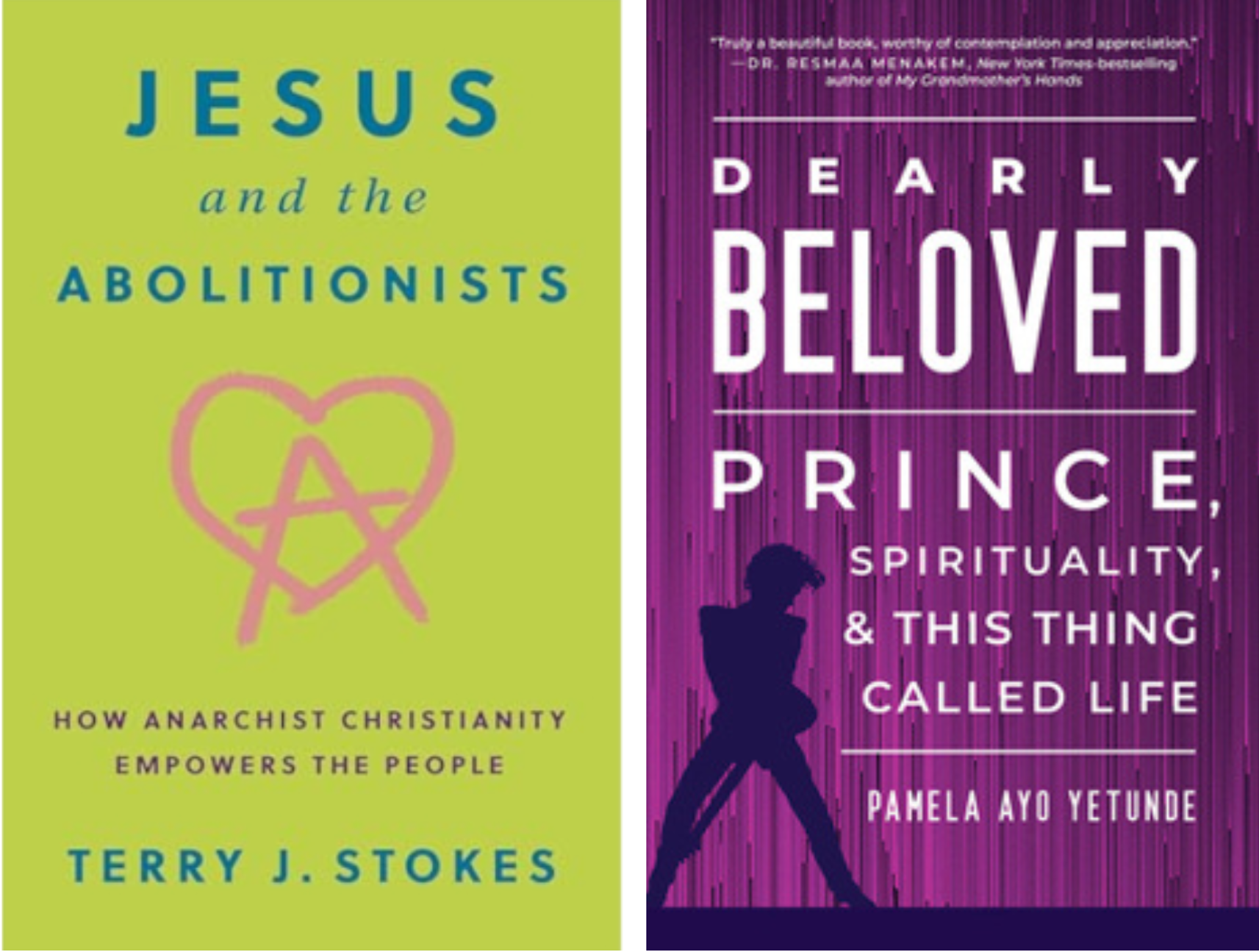New Book Releases
BY SHAUNDALE RENA
Intimate Transformation Through Books
With the bulk of our new year ahead of us, intimacy lends its hand as we turn the pages from self-assessment to self-actualization. So many times, we look to others, when we should start with self. As all things become new, we must instinctively trust that it is well within, even if we don’t feel well without—without having, without being, without doing, without getting. Now understanding this concept, I recognize there is a beauty to being emptied out and filled up again. Spiritually speaking, “into me see” is what our hearts long for … To be seen. To be heard. To be loved. To be whole. Intimacy is looking inside, searching all the pieces. Sometimes, it is being held. Mostly, it is simply being understood. That’s what this quarter’s new releases did for me. Caused me to take inventory of myself. To tune in to the conversation taking place in my soul.
After spending all day reading Jesus and the Abolitionists: How Anarchist Christianity Empowers the People, I felt as though this book chose me. What I enjoyed is that it encompasses a unique blend of historical, Biblical, logical and practical wisdom and principles. Add that to doses of humor sprinkled throughout, and you’ll find a nice balance of philosophy and personality, as Terry J. Stokes identifies what anarchism is and how to “use it” in a lifestyle where service to humanity is the “organizing principle for systematic theology.” In my favorite chapter, God is a Lover, Not a Ruler … Anarchy in the Trinity, Stokes is neither legalistic nor dogmatic in his approach. Like a breath of fresh air, what struck me is his ode to Janelle Monae’s, “God is Nonbinary.”
I actually allowed myself to detach from the thoughts and patterns I’ve habitually lived, fighting off the occasional teetering of offense, and went where the writer took me. My thinking floated. I felt the tension surrounding what I label “spiritual bondage” leave my body as my inner self no longer resisted being wrong. My willingness to explore just this one simple idea wasn’t a dealbreaker for me. I let the new belief that God isn’t singular permeate my mind. Like, we (Christians) know this; however, something about God being “labeled” as nonbinary/gender neutral bothered me deep down. Still, I focused and detected no lie. In the grand scheme of life, God is absolutely, in fact, three composite entities. He is a triune God. Subconsciously, I gave myself the only approval I needed to no longer struggle to hold on to age-old concepts.
God is neither/or?
God is both/and?
Sitting with these thoughts caused me to relax. It was strangely freeing to not be confined, limited to a belief system—to explore the conversation forming in my head. And, if I’m honest, it’s not like I haven’t questioned these things before.
A talking snake? Got it.
Ate a piece of fruit? Okay.
Blames the woman? Typical.
Banned from the garden? Deserved.
Hard labor pains? Side eye.
Sticking to the facts the author presented, I let my conditions go. I felt my way through and came out better. Emotions rose up; I checked them. Wanting rebuttal, I questioned why. This, indeed, is true growth. And, because I couldn’t just choose one book this time—as we prepare for the new 2025—Dearly Beloved: Prince, Spirituality, & This Thing Called Life also opened me up to an experience I didn’t expect. Yet, it goes without saying that this is not a book about Prince; it is a book about his theology.
As Pamela Ayo Yetunde makes a strong case for undergirding Prince’s faith and much of his artistry, she points out in Dearly Beloved, Prince’s lyrics. From songs whose lyrics I still remember, all the way to songs I never knew existed, she explains how his backstory paved the way for the religious fluidity that shaped his life and the narratives he wrote and sang. Coming to the realization that Prince addressed each listener as “Dearly Beloved,” a phrase intended to emphasize their inherent worth and to encourage self-reflection, left me feeling both shock and glee.
Throughout Dearly Beloved, Pamela guides readers to engage with Prince’s work on a deeper level, offering playlists and analyses of his songs and films. She focuses on Prince’s intentional word choices, showing how he used his music to convey affirmations of love and purpose, including “Dearly Beloved.” And after reading her observations and offerings, I understand what she meant. “Dearly Beloved was meant for us all … “Yes, that means you too!” Those words speak an affirmation so many needs and, to Pamela’s point, there are also constant pauses when addressing readers as such, to ensure we get it. Upon this realization, I too felt the weight of that pause and my subconscious shifted … I, too, am Dearly Beloved!
Pamela asks each of us to please use our imagination to take that in and visualize ourselves as part of a global family. I did, and I am now consciously aware that a change happened. Her exploration encourages mindfulness and self-awareness, positioning Prince as a guide for navigating “this thing called life.” She supports her arguments with insights from those who knew Prince personally, such as Lisa Coleman, Wendy Melvoin, and his first wife, Mayte Garcia. These accounts reveal a man deeply committed to prayer, signs and spiritual reflection, even as he grappled with personal tragedies like the death of his son.
Pamela alludes that, “in Prince’s theology, wisdom without devotion is not the kind of love that will get anyone across the bridge into eternal life.” She poses many questions throughout. In short, Pamela encourages and celebrates Dearly Beloved, bridging gaps and creating opportunities for nontraditional rites of passages into the sacred space of worship—somewhere Under the Cherry Moon or in the Purple Rain.
While I cannot say I was overtly thrilled or gravely disappointed by either adaptation of work, I will say they were both thought-provoking, life-changing pieces that I hope you’ll read on your own as you labor in the love of self this upcoming season of chocolate-covered flowers and candies.
Shaundale Rénā (@iShaundale) is a multi-award-winning freelance developmental editor specializing in romantic comedy, historical, contemporary and women’s fiction, and nonfiction self-help and memoir. With six international awards under her belt, Shaundale has collaborated with imprints like Adams Media/Simon & Schuster and Lake Union Publishing/Amazon Publishing on bestsellers like Self-Care for Black Women and Scarlet Carnation. Her most successful self-published clients, Kimberlee Yolanda Williams and Zariah L. Banks, have won multiple awards for their work, Dear White Woman, Please Come Home and Beauty Beheld, respectively. Shaundale’s passion for connecting the big picture of a story shines through in her work with indie and traditionally published authors alike. When she’s not editing for clients and writing under her alias (@StonyRhodes), she writes the New Releases column for KIZA Blacklit Magazine and book reviews for the African American Literature Book Club (AALBC). Learn more about Shaundale and her work in the literary arts by visiting www.ShaundaleRena.com.

